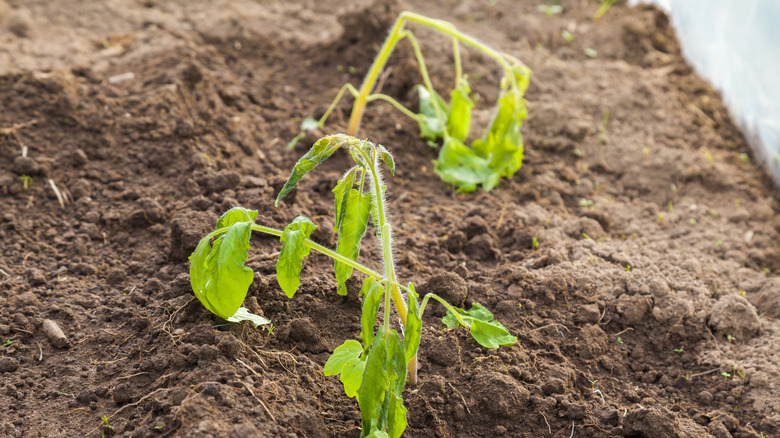Between purchasing materials to keep out pests, finding the best soil and compost mixes, and creating the perfect environment through fertilizers and plant food, gardening can quickly become an expensive hobby. While saving money and repurposing household supplies is attractive for many gardeners, one particular garden hack poses dangerous risks and should therefore be avoided. Using ammonia in DIY fertilizers isn’t worth the cost savings it might offer, as it could harm both your plants and you and your family’s health.
Ammonia (NH3) is a colorless chemical that is abundantly found in nature and commonly used for commercial purposes. Most people are familiar with the many ways to use ammonia in the home, especially when cleaning. The majority of commercial ammonia is also used in agriculture by experienced farmers. This chemical contains nitrogen and plays an important role in the nitrogen cycle — in fact, it’s naturally made in the environment when excrement and dead plants and animals decompose. However, many gardeners reach for this chemical when feeding their plants to add even more nitrogen into their soil. Countless “garden hacks” involve using ammonia to make plant food, with DIY recipes ranging from a simple water and ammonia mixture to a full compound including baking soda and salt. However, it’s not generally safe to use household ammonia on your crops. Products that are not labeled for use in the garden can be toxic to plants and may compromise the safety of the harvest.
Ammonia’s risks to plant life

Using ammonia as a garden fertilizer might actually do the opposite of what you had hoped in your garden. Without a thorough knowledge of how to use this chemical properly, predicting the impact of ammonia on your plants is very hard. According to a 2024 study published by Agronomy, some types of plants can suffer from ammonia toxicity, which causes decreased growth, and avoiding this is difficult. Further, mixing liquid ammonia with water creates aqueous ammonia, a compound that may be toxic to plants in large amounts. Additionally, unless you’re an experienced farmer, it could be easy to misjudge the amount of ammonia to add to the soil. This could result in too much nitrogen, which may trigger excessive growth, harm productivity later on, and attract various pests.
Household ammonia-based cleaners definitely shouldn’t be used in the garden, as they can contain fillers and additional chemicals that may harm your plants. Repurposing household ammonia as garden fertilizer simply poses too many unknowns to be reliable and safe. Instead, it’s better to seek out other low-cost DIY fertilizer options, use your favorite plant food, or apply a balanced compost to help your garden thrive without risking your plants’ health.
Health risks of handling ammonia
Picking up a large bottle of ammonia on your next grocery trip and skipping the costly fertilizers may be tempting, but the health risks of handling ammonia are quite high — another reason why it shouldn’t be used in the garden. In its pure form, ammonia is a gas that is highly-corrosive, which is why it can be harmful for both humans and plants. Even after it’s made into a liquid and combined with water or other chemicals, it’s still extremely dangerous.
Further, the consequences of improperly handling ammonia can be life-altering. According to the Centers for Disease Control and Prevention, breathing in high levels of ammonia can cause lung damage or, in extreme cases, even death. If ingested, it can damage the mouth, stomach, and throat because of its corrosive nature. Simply by handling the chemical and risking contact with skin and eyes, gardeners run the risk of severe irritation, injury, and chemical burns. In some cases, contact with industrial cleaners can even result in permanent blindness. Especially for households where children and pets may come into contact with garden supplies and fertilizers, opting for ammonia is a choice that can put your family in jeopardy. Because of these reasons, it’s best to keep this chemical out of the garden.